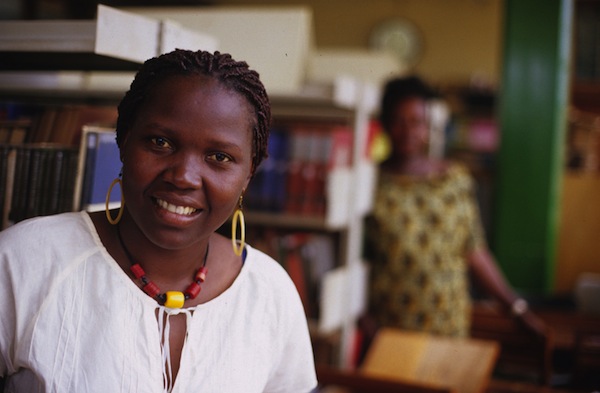Identifying Digital Opportunities for African Youth
Editor’s note: NextBillion is publishing a series of posts on emerging trends in Impact Sourcing, through work performed by the William Davidson Institute (WDI) and funded by the Rockefeller Foundation. Previous posts in the series can be found here. This article originally appeared on The Rockefeller Foundation blog.
While global leaders met in Davos last month at the World Economic Forum focused on Resilient Dynamism, The Rockefeller Foundation hosted a meeting in New York focused on how African youth can be resilient in a dynamic global economy. We brought together a diverse group of representatives from the information and communication technology (ICT) sector including Accenture, Microsoft, CISCO and IBM with non-profits MercyCorps and International Youth Foundation, major donors USAID and IFC along with thought leaders and Rockefeller Foundation partners like Digital Divide Data, Samasource, Monitor Deloitte and the William Davidson Institute to identify promising areas in the digital economy that can provide job opportunities for African youth.
For the past two and a half years, The Rockefeller Foundation has been supporting work to foster the development of Impact Sourcing – outsourcing jobs for poor or vulnerable people without the opportunity for alternative employment. With a $512 billion, and growing, global outsourcing market, this work seeks to enable more equitable growth by allowing youth in Africa to tap into potential job opportunities. From our work, we learned that employing poor or vulnerable youth in the digital economy not only allows them to increase their income-up to 200 percent, and learn skills that are applicable for future jobs opportunities; but that businesses can reduce their costs up to 40 percent for the same high quality service.

Building off what we learned about Impact Sourcing, we are now thinking bigger about job opportunities in the dynamic digital economy. According to IBM, every day, we create 2.5 quintillion bytes of data — so much that 90 percent of the data in the world today has been created in the last two years alone. This data comes from things like sensors used to gather climate information, posts to social media sites, digital pictures and videos, purchase transaction records, and cell phone GPS signals. We think that this explosion of technology and big data has the potential to create much needed job opportunities for African youth. At our meeting last week, together with our partners, we identified several areas of the digital economy that could employ African youth at scale. For example, increasing mobile phone penetration in Africa has made it possible for Kenya’s mobile money transfer platform mPesa, with 15 million registered users, to employ 50,000 people. Technology platforms can function as job matching services. Could there be a Task Rabbit in Africa that matches a skilled African youth with a job? Technology also enables large sectors in the African economy including agriculture, healthcare and financial services. How can technology help to improve the agriculture sector, the largest employer in Africa? Can the increasing use of mHealth also create jobs? What are the technology needs of the growing financial services sector across Africa?
Creating an opportunity for young people to both earn an income and learn highly sought after skills by working in the digital economy presents an exciting opportunity to address the unemployment challenge in Africa. The Rockefeller Foundation is eager to explore what role it can play in coordinating a coalition of partners from government, civil society and the private sector committed to supporting African youth to increase their resilience in the dynamic global economy.
Sarah Troup is a Strategy Associate at The Rockefeller Foundation. She is responsible for supporting the work of the Chief Operating Office and the Vice President, Strategy and Evaluation.
- Categories
- Education, Technology
